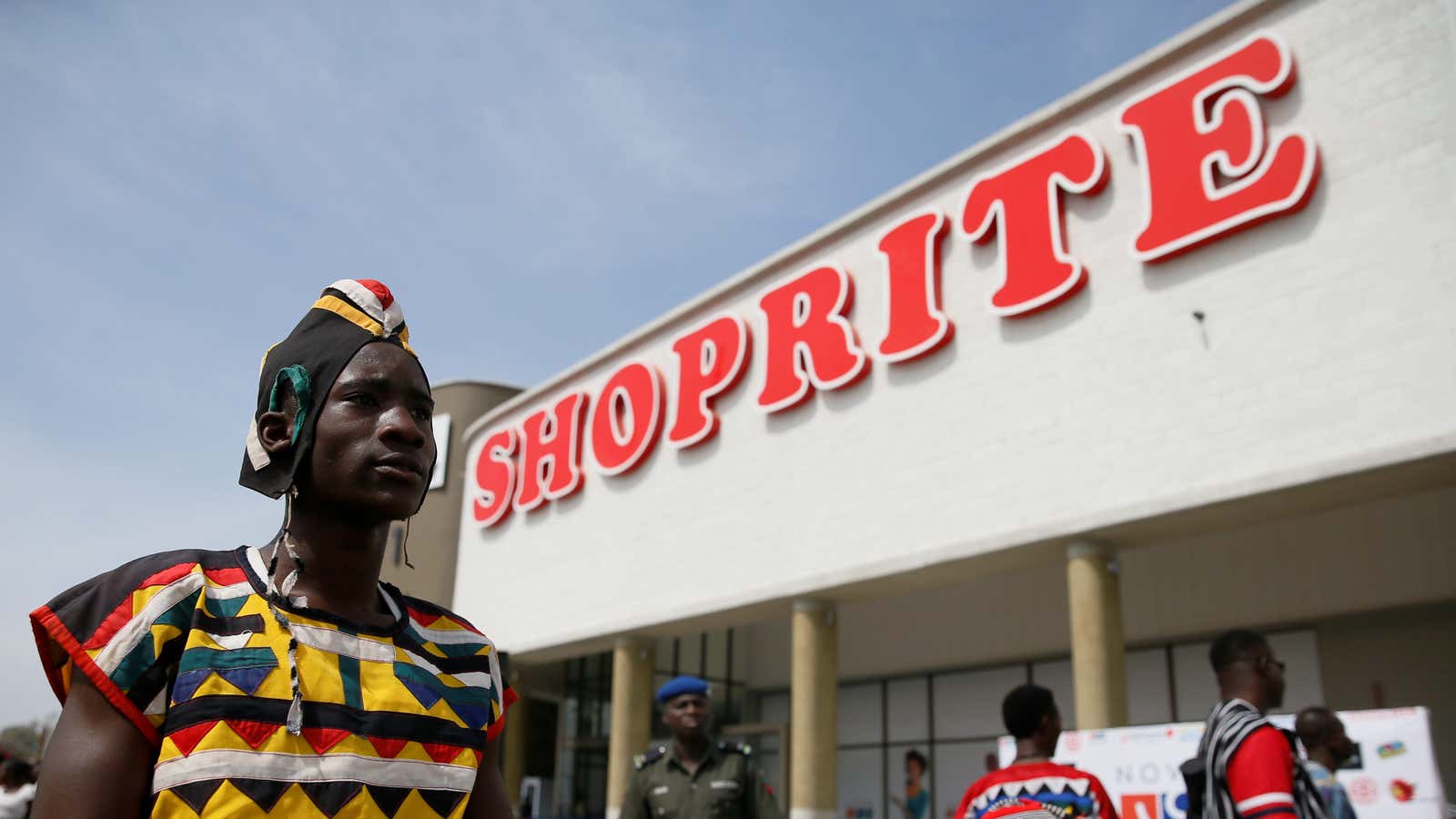After a three-decade run, one of Kenya’s biggest supermarkets Uchumi closed its prime location at the Sarit Center mall in Nairobi in late February. Bedeviled by debts and stock-outs, the retailer had already been forced out of Tanzania and Uganda and saw the number of its countrywide stores in Kenya reduced to 20 branches.
Uchumi’s years-long woes were a precursor to the problems currently facing Nakumatt, once the country’s largest supermarket chain. After months of dwindling stocks, legal battles with creditors and suppliers, and a severe cash flow from the failure to secure a $75 million financing deal, the company declared bankruptcy last October in a bid to fight liquidation efforts. With unpaid rent arrears, many of its branches across the country were closed with some landlords seizing possessions to make up for their dues.
Yet the spaces left by Uchumi and Nakumatt respectively aren’t being left vacant but are rather being taken up by new foreign outlets swooping in to fill their shoes. These international and regional outlets are bringing with them considerable investment buoyed by a rising middle class with increased purchasing power, positive economic metrics, besides shifting consumer habits that are leading to the development of new shopping malls.
Right after Uchumi exited Sarit, French retailer Carrefour whose local franchise is held by the Dubai-based Majid Al Futtaim holding group, announced it would take over the space. It’s the company’s fifth store in Kenya barely two years since it entered the market.
A day later, Shoprite, Africa’s largest retailer, announced plans to enter the Kenyan market with a strategy to open seven stores. Specifically citing the “disarray” in the retail sector as a catalyst, the company said it wanted to strengthen its position in East Africa and would open its first store before the end of 2018. Across the continent, Shoprite has deliberately sought out Africa’s growing middle-class consumers, customizing experiences in the 15 nations they operate in. Starting from eight stores in South Africa worth 1 million rands in 1979 (around $1.2 million then), the chain has grown to become Africa’s largest retail chain, worth 113.7 billion rands ($8.5 billion) today.
Touting this regional experience and liquidity advantage, Shoprite told Quartz it has concluded lease agreements with Garden City mall and Westgate mall in Nairobi, where Nakumatt closed it branch last year. It also said it “sees a lot of potential outside of the capital city in time to come.”
The diminished role of local players seems to dampen the heightened expectations that many in the industry had accorded them over the years. With Nakumatt, for instance, the chain represented the eventual shift from an informal economy of open-air markets and small duka shops to a more Western-style formal economy of supply chains, credit cards, and 24-hour stores. As it found its footing in thriving African cities like Kigali, Dar es Salaam, and Kampala, its brand was showcased as fortifying the aspirations of newly minted middle-class families. But as family-owned enterprises, many have lamented the fact that they failed to look beyond their local dominance and understand how the industry was shifting.
Despite this, both industry analysts and the Kenyan government remain bullish noting that competition and the establishment of more formal retail outlets were good for the market. As part of its Vision 2030, authorities want more competitors to enter the sector, establishing friendly legal and regulatory frameworks aimed at spurring growth.
Julians Amboko, a senior research analyst with advisory group Stratlink, says the retail sector’s consistent growth with regards to the overall economy serves as a “key prop” for investor confidence. And while there are fears that local entities were being crowded out, there was still potential for other homegrown entities—like Naivas, Tuskys, and Chandarana supermarkets—to consolidate their footprint.
“The planned entry lends credence to our view that despite the bout of headwinds and pervasive adverse publicity in the recent past, Kenya remains one of the sweet spots for investing in sub-Saharan Africa wholesale and retail,” he said.
Lynsey Chutel contributed reporting to this story.
